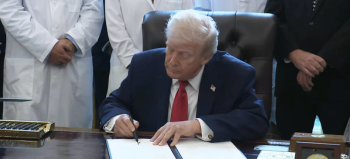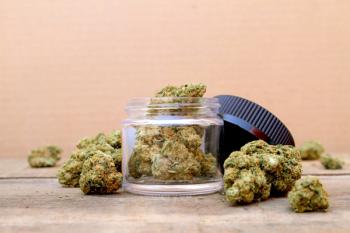
Update from the FDA: Not Adopting Existing Regulations for the CBD Industry
This blog is in response to the January 26th, 2023 announcement from the Food and Drug Administration (FDA) in regards to regulatory oversight in the cannabidiol (CBD) market.
The hemp industry has been in a bit of a pickle for several years: consumable hemp-derived cannabinoids are federally legal, yet not regulated and not allowed by the FDA to be added to or labeled as foods or supplements. The question becomes: what regulations should cannabidiol (CBD) and other cannabinoid companies be following to ensure their products are as safe as possible before being sold to their customers?
For more than four years, we have been patiently waiting for the FDA to make a move and give the industry some kind of guidance when it comes to consumer safety. As I have preached in the past, the FDA has literally one job: to protect our citizens by ensuring safe products are on shelves. It seems they have dropped this ball considering most local and state health departments aren’t regulating cannabinoid products either. This means that most of the products on the shelves aren’t being seen or regulated by a health department at all. In fact, in many states companies aren’t even licensed because the local and state departments don’t know what to license them as, mostly due to the FDA’s statements. As an industry we have been begging the FDA to tell us what regulations to follow. Not knowing what the regulations will look like or when they are coming out is a huge stressor for the industry, and it needs to be resolved. Not only for business owners, but for the consumers of all cannabinoid products. Unfortunately, this recent announcement is just the FDA doing a whole lot of nothing again.
Consumers want safe access to CBD and other hemp-derived cannabinoids, but the FDA has yet to dedicate time to creating a regulatory framework for hemp-derived cannabinoids. The good news is that the FDA finally publicly addressed the lack of applicable regulations for this industry. The not-so-good news is that the administration revealed they will not regulate the CBD industry as a food additive or dietary supplement, the much easier and timely path.
It seems the FDA is playing hot potato and passing the hot CBD topic to another entity—Congress. The FDA made a statement (1) that the administration will not use existing food and dietary supplement regulations for CBD but will rather work alongside Congress on a new set of regulations. Although the FDA’s release is not the public announcement we were expecting, we see this as at least some momentum for the CBD industry.
The FDA’s Hesitation
Purportedly, the FDA’s hesitation is because of unknown potential human and animal risks when consuming CBD products. According to Dr. Janet Woodcock, the principal deputy commissioner of the FDA, studies have shown CBD has potential harm to the liver, interacts with certain medications, possibly causes harm to the male reproductive system, and raises concerns when it comes to certain vulnerable populations such as children and those who are pregnant (1).
In addition to the statement released, the FDA may have hesitation because of adverse reactions in Epidiolex patients (≥10% and greater than placebo) (2). Keep in mind Epidiolex contains high CBD dosage, which doesn’t equate to a much lower dose typical to consumer dosage.
Dr. Woodcock also said (1): “Given the available evidence, it is not apparent how CBD products could meet safety standards for dietary supplements or food additives. For example, we have not found adequate evidence to determine how much CBD can be consumed, and for how long, before causing harm. Therefore, we do not intend to pursue rulemaking allowing the use of CBD in dietary supplements or conventional foods.”
Once again, this is the stance that the FDA was already taking for the last few years. Accompanying the FDA having concerns about the safety of directly consuming CBD products, the FDA also stated concern for humans consuming animal products that were fed CBD within their diet. Specifically, the safety of meat, milk, and eggs from animals fed CBD were included in the FDA’s statement release. Traditional animal feed has studies supporting its use; CBD feed would need the same. According to the statement, there is not enough evidence to determine how much CBD can be safely consumed. Future regulations will be based on scientific studies for safety efficacy. Because reputable studies take time, the creation and release of the future CBD regulations will most likely drag on for what seems like a lifetime.
What really bothers me about these statements is if the FDA truly is not sure that CBD and other cannabinoids are safe, then why did they allow them to be sold in the first place? Now that Pandora’s box is open, if the FDA decided, for instance, to consider CBD a pharmaceutical or decided not to allow it at all, it would mean killing an entire industry, affecting hundreds of thousands of jobs, and eradicating a $4 billion industry.
We understand that CBD is different from other consumables sold, but they have had years to figure this out and the easiest way of handling this issue and actually regulating the industry would not have been to reinvent the wheel, but rather to have CBD and other cannabinoids fall into an already existing category such as supplements or food ingredients. Now the industry will have to wait (who knows how long), for a full new set of regulations.
That being said, the FDA truly isn’t going to re-invent the wheel. Food safety is food safety. They will be following already existing food safety practices and tweaking them to work within the CBD industry. There are some major differences in the cannabinoid industry that don’t exist in wholesale food manufacturing, I agree. But once those nuances are realized they are relatively easy to address. My hope is that Congress gets it together and requests a workgroup or team to write the new set of regulations, and hopefully it’ll be soon. Based on the patterns of the past, I am not expecting anything timely.
Several states have worked to regulate other hemp sourced cannabinoid derivative products as well. Many of these derivative cannabinoids are unlike CBD because they have intoxicating effects. DEA officials have indicated that delta-8 THC and other derivative cannabinoid products are not controlled substances as long as they're extracted from the natural plant, not synthesized in a lab. Just another thing to keep our eyes open for in the future since the industry has only scratched the surface when it comes to derivative hemp sourced cannabinoids.
Future Regulations
Many states have approved hemp cultivation plans with the United States Department of Agriculture (USDA), but since manufacturing firms are not included in FDA’s regulations, manufacturing facilities are lacking federal oversight. The new proposed regulations are meant to close that federal regulatory gap. The proposed new regulatory standard will include safeguards to minimize risk—similar to the food and dietary supplement FDA standards. According to the FDA statement release (1), “Some risk management tools could include clear labels, prevention of contaminants, CBD content limits, and measures, such as minimum purchase age, to mitigate the risk of ingestion by children.”
The statement explained that new regulations are needed for the CBD industry because their existing food and dietary supplement regulations have gaps that do not cover risks associated with CBD products. The FDA sees value in creating a new set of standards for the CBD industry, although their future regulations may have aspects copied and pasted from the Code of Federal Regulations (CFR) 111 (dietary supplements) and CFR 117 (food), and maybe CFR 211 (drugs) as well. Time will tell how the new set of regulations differ from already well-established regulations.
Even when the federal CBD regulations are live, we are not so sure the FDA will have the resources to regulate the entire industry. With federal guidelines, more states may take these firms under their regulatory wing. Once the regulations are made available, we expect to see additional states get involved with regulating the manufacturing and infusion CBD industry.
The FDA is not allowed to write a set of their own standards until Congress gives them that task. Based on past decisions they will most likely adapt an already written standard developed by a company, such as ASTM International or another similar company, once they get data proving the safety of CBD. Unfortunately, even if Congress gives them this pathway it will still take time to write a standard and be able to prepare for enforcement of those regulations. So, I would keep an eye on the standards that are coming out of ASTM International and others to get an idea of what might be required in the future.
What Do We Do Until the FDA and Congress Creates New Regulations?
The statement persuasively acknowledged the FDA’s intention with enforcement actions taken against CBD firms (1): “The FDA will continue to take action against CBD and other cannabis-derived products to protect the public, in coordination with state regulatory partners, when appropriate.”
Government is known for its regulatory sticky tape and for taking forever—the new set of regulations will take time, so what can hemp firms do in the meantime? Focus on the “when appropriate” piece of the statement above—don’t attract their attention!
We suggest following FDA’s established current good manufacturing practices (cGMP) for food and dietary supplements, get cGMP certification from an accredited third-party company, follow tetrahydrocannabinol (THC) potency restrictions, be cautious when making health claims for hemp products, make friends with the state or local authority who has jurisdiction over your establishment, and work with a third-party compliance firm. Someday we will look back on this and laugh, but right now it feels like a scary place to be for the cannabinoid industry. Only time will tell how it will all shake out.
References
https://www.fda.gov/news-events/press-announcements/fda-concludes-existing-regulatory-frameworks-foods-and-supplements-are-not-appropriate-cannabidiol https://www.accessdata.fda.gov/drugsatfda_docs/label/2022/210365s015lbl.pdf
About the Author
Kim Stuck is the CEO and founder of Allay Consulting. Direct correspondence to:
Newsletter
Unlock the latest breakthroughs in cannabis science—subscribe now to get expert insights, research, and industry updates delivered to your inbox.




